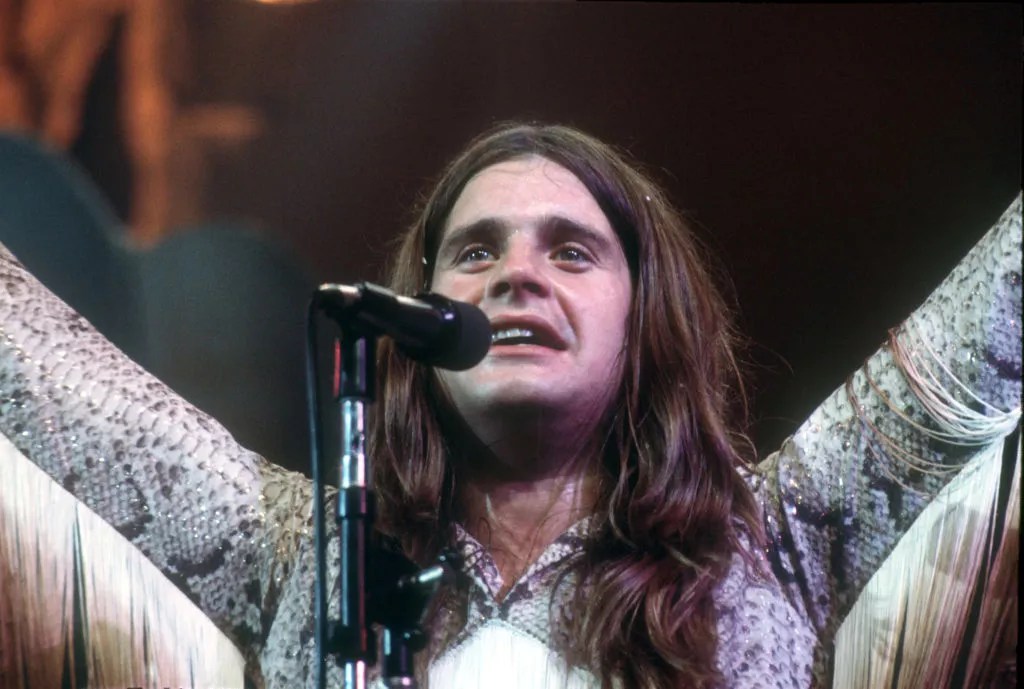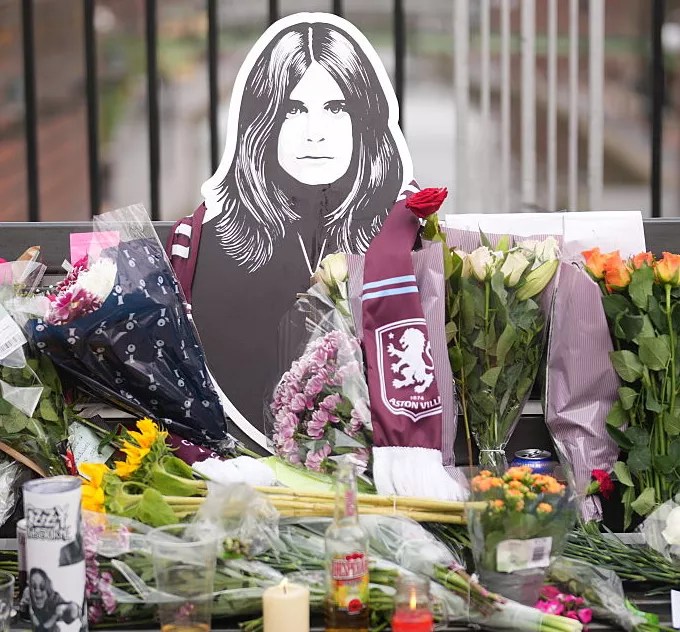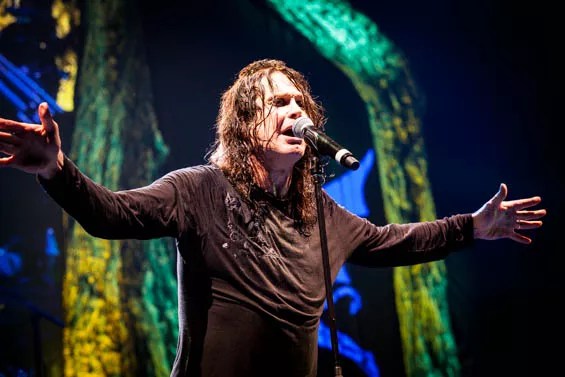
Michael Ochs Archives/Getty Images)

Audio By Carbonatix
It’s 12:22 p.m. Tuesday, July 22, 2025. After decades of thumbing his nose at mortality, Ozzy Osbourne is dead.
We all saw it coming, but it hit too soon. “Just a few more years,” we prayed 17 days ago as we watched him, throned like a war-wearied god, lead Black Sabbath through what – 12 years after a final studio album, eight after an alleged farewell run – would definitively be its last performance.
This time it was perfect, a proper goodbye. Famous disciples praised him, loudly demonstrating his influence. Then, finally, the OG Black Sabbath lineup, as its crowning stand was meant to be: Ozzy, bassist Geezer Butler, guitarist Tony Iommi, and, at last, estranged drummer Bill Ward, stone-bald, shirtless, battered by heart scares but defiantly immortal.
As they prepared to blast 1970s “Paranoid,” the song that put Sabbath on American radars, Osbourne stared deep into the band’s native Birmingham, England, and addressed the faithful. “Thank you from the bottom of my heart,” he said. “I love you. We love you.” Lifetimes of problems, crises and disappointments aside, everyone loved them back.
Posthumous platitudes came immediately: iconic frontman, heavy-metal pioneer, troubled legend, genre godfather, the undisputed Prince of Darkness. To me, though, he was just the fucking man.

Flowers, candles and messages in memory of Ozzy Osbourne are left on the Black Sabbath Bridge bench on Broad Street on July 23, 2025, in Birmingham, England.
Christopher Furlong/Getty Images
My generation, I think, knew Ozzy before Sabs. That group was a going concern, but it shambled along the moors, growing and severing appendages. It was my dad’s band in its prime, meant for long, dark ’70s nightmares under headphones, pharmaceuticals within reach. By my childhood, that recklessly accelerating train had derailed under the coked-up weight of “Technical Ecstasy” (1976) and “Never Say Die!” (1978), two records that have, deservedly, been reappraised from a sober distance.
Freed of that albatross, Ozzy became a successful but infamous solo artist, my middle school’s T-shirt king. We scratched his name into every surface, slashing Bibles of lyrics into desks and notebooks. Endlessly retold the story of him beheading a bat with his teeth in Des Moines, like it was new information each time. We wept over the inexplicable 1982 death of his genius guitarist, Randy Rhoads, lost in the most rock ‘n’ roll way possible: diving in an airplane within inches over a tour bus.
At this peak, Ozzy represented a deadly if admirable heavy-metal lifestyle, drinking, drugging and living beyond excess, impervious to repercussion, rocking beyond sin, untouchable by authorities mortal and divine. He signified rebellion. I can’t count how many times our school papers ran space-filling song dedications, with someone inevitably telling an ex to “Bark at the Moon.”
Meanwhile, Black Sabbath became an umbrella for revolving shifts. The Ronnie James Dio lineup was capital ace, but that cracked up within four album sides. By 1983’s “Live Evil,” those guys were history, dissolved in studio battles during the mixing process. Thousands of members passed through as the band staggered forward. I remember that 1986’s “Seventh Star” was supposed to be a Tony Iommi album until Warner Bros. forced him to stamp the group’s name on it, even though Iommi was its only Sabs connection. (I love the Glenn Hughes and Tony Martin material, but those are NOT Black Sabbath songs.) This would continue for three more records until Dio came back for 1992’s “Dehumanizer,” then resume again before Ozzy’s re-entry for “13” (2013). It was a mess. A fun, dizzying mess, but a mess, nonetheless.
Somehow Ozzy survived his ’80s wanderings and even recovered from 1986’s “Shot in the Dark” and that sticky Lita Ford ballad duet, “Close My Eyes Forever,” three years later, which, as I’ve learned, was written when both were skunked off their toes, a common state for much of us at the time. He even avoided the battering commercial metal took in the ’90s, held aloft as a god above the likes of Winger, Warrant and Poison. (In 1996, he launched a festival in his name. You always knew what you were going to hear, all at merciless volumes, even Black Sabbath.)

Black Sabbath at US Airways Arena in 2013.
Jim Louvau
Having dismissed him as a relic – I’d allegedly grown up and retired my teenaged things – I became reacquainted with his genius through a $3.99 purchase of 1993’s “Live & Loud,” his apparent last hurrah. (I mean, why call it “No More Tours,” right, though “Retirement Sucks” was a great rejoinder.) But he and his band went all out for two discs, galloping through solo work and Sabbath – once, with Sabbath – then concluding with the mighty “Changes,” a tear-duct-ripper supreme. Not to mention the whole of Cincinnati singing along and alone to “Goodbye to Romance.”
Admittedly, I lost track of him after that. It was just enough to know he’d survived. I caught him in movies, where he seemed natural at self-aware parody (let us recall the egg-frying sequence in Penelope Spheeris’ “The Decline of Western Civilization Part II: The Metal Years”), then watched him yuck it up with his family on MTV, happily destroying decades of reputation as a fun, addled dad. He became a lesson, in a way, for all of us as we aged: reinvention without surrendering your core.
“Master of reality,” indeed. That he contributed to this genre of television should be a punishable offense. However, he’s Ozzy, so he gets a pass. Before throngs of thousands or his wife Sharon’s Pomeranian, Minnie, he was nothing but himself. The Kardashians are not his fault.
Good or bad, such gale forces are rare in our lives. That he lived to 76 isn’t just his privilege – it’s the world’s. When we first saw him for the last time, he rose from the depths on his winged Birmingham throne and smiled at 42,000 people.
“Let the madness begin!” he proclaimed.
May it continue. May it never fucking end.